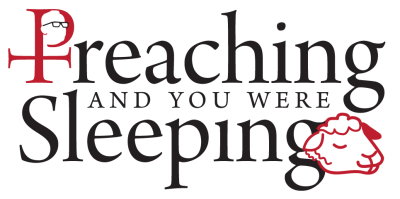Each year on the fourth Sunday of Easter, the gospel presents us the image of Jesus, the Good Shepherd. The image of Jesus holding a crook in one hand and a sheep in another is one that is imprinted in the minds of many people. In that image, Jesus is often presented as warm, gentle, and love emanating from the core of His being. Interestingly, Jesus who grew up in a family where Joseph was a carpenter, knew what characterises a proper shepherd.
In our gospel passage today, Jesus offers a clear contrast among shepherds – the good from the bad, the ones who care deeply for those entrusted to their care, and those who are just going through the motions and are more motivated by selfishness than sacrificial love. It is in this context that Jesus will present Himself as not only the Good Shepherd but also the True Shepherd.
The parable of the Good Shepherd is placed in John’s gospel just after the account of Jesus healing the blind man. The conversation begun about whose sin caused this man to be born blind but it will end with the blind man being confronted and being silenced for speaking about Jesus. The Pharisees were not happy for this man now that he could see, but their lack of concern and compassion for the blind man caused them to be obstinate about Jesus. Jesus now takes the opportunity to teach the disciples about a good shepherd.
And so, the presentation of a good shepherd in contrast to a bad shepherd describes how the sheep develop a sense of trust in the shepherd and that is why the sheep listen to his voice, they follow him, never follows a stranger. The good shepherd lays down his life for the sheep and he knows his sheep and his sheep know him. The good shepherd has the interest and well-being of the sheep.
Though the image of a shepherd escapes our lived experience today, through the parable of the Good Shepherd, Jesus not only offers us His unwavering love and support to us as our one and true Shepherd, but the parable must also inspire us to want to return this gift to Jesus by offering this same unwavering commitment to one another.
Though this parable could be applied to all of us in our own unique way, this Fourth Sunday of Easter is a day set aside as a Day of Prayer for Vocations (a.k.a Vocations Sunday), more specifically to the priestly and consecrated way of life. Even though we are all called to be faithful to the commandments of Jesus and to show others why following Christ is one of great joy, peace, and significance, the call to priestly and consecrated way of life is to embrace a unique way of life, different from others, and offer oneself in a life lived in love with God and His people.
Some people say that we have a vocation crisis because of the fewer numbers of priests and religious sisters and brother. But our problem is not merely a shortage of vocations, it is a shortage of families who are thinking vocationally, for it is from families that vocations come. God is calling, but many are not hearing the call–are not disposed to hear God’s voice.
Joining the priesthood or religious life is no automatic guarantee of enjoying a fulfilling life, any more than getting married. Every choice requires giving up other alternatives and a life that is happy grows out of many sacrifices. I can speak best of the life I know, and, in spite of the obvious sacrifices involved in being a priest, I cannot imagine a more privileged life. In Jesus I have found the fullness of life. Amen.



